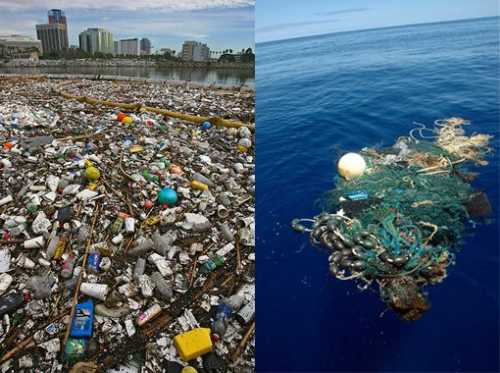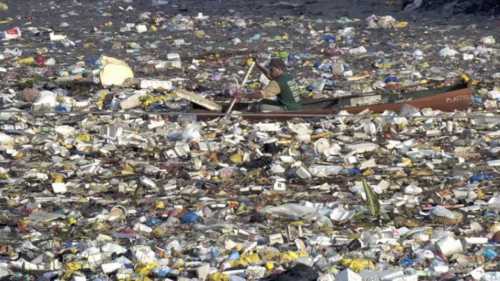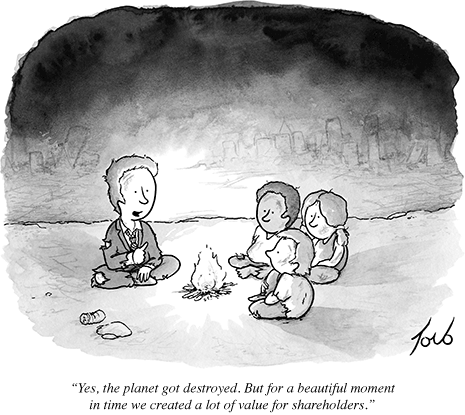Toxic Wildfires Causing Pollution, Climate Disruption, Etc. Funded by Big Banks & US Investors in Palm Oil
One of the worst crimes being committed on the planet is the deforestation of tropical rain forests in Indonesia. Indeed, investment in palm oil is responsible for a massive release of greenhouse gases and toxic wildfires in Indonesia, which produced a deadly miasma of gases that killed an estimated 100,000 people in 2015.
A smog outbreak in Southeast Asia last year may have caused over 100,000 premature deaths, according to a new study released Monday that triggered calls for action to tackle the “killer haze”.
They estimated there were 91,600 deaths in Indonesia, 6,500 in Malaysia and 2,200 in Singapore.
Greenpeace hailed a “groundbreaking” study they said for the first time gave a detailed breakdown of deaths from last year’s fires, but cautioned that the figure was a “conservative estimate”.
These fires produce a number of deadly gases, including carbon monoxide, ammonia and cyanide, along with traditional greenhouse gases, CO2 and methane. And despite the claims of Indonesia's government that it is working to reduce deforestation, the truth of the matter is that the government there is corrupt and is doing everything possible to silence the victims.
No surprise, but large banks have funded these palm oil plantations. The top ten lenders alone have provided loan funds to the palm oil industry responsible for these fires of $16.5 Billion. Six banks that made that list are from China, Japan, the United Kingdom and the United States, including such behemoths of the financial world as HSBC and JP Morgan. Of course, they deny they acted irresponsibly, but those denials are lies. One prime example is HSBC:
The world’s sixth-largest bank has helped marshal $16.3 billion in financing for six companies since 2012 that have illegally cleared forests, planted oil palm on once-carbon-rich peatland, and failed to secure the support of local communities for their operations – all of which run counter to HSBC’s own environmental commitments, according to Greenpeace. [...]
[T]he bank told Mongabay that’s not what is happening.
“HSBC’s policies prohibit the financing of operations that are illegal, damage high conservation value forest/landscaping or violate the rights of workers and local people,” Ankit Patel, a spokesperson for the bank in an email. “HSBC does not knowingly provide financial services which directly support palm oil companies which do not comply with our policy.
Unfortunately, as the article points out, the truth is that HSBC is one of the lenders responsible for funding that led to a massive deforestation of Indonesia's tropical rain forests without the "free, prior and informed consent” of local communities." Their claims they did not act "knowingly" ring hollow.
And it's not just the banks, but large institutional investors in the United states are putting billions more dollars into the palm oil industry, that creates both environmental disasters and social disruption.
Burgeoning demand for the cheap vegetable oil, increasingly from China and India, is putting pressure on rainforests that are cleared to make way for the crop. According to the FoE report, BlackRock, the Vanguard Group, JPMorgan and Fidelity Investments have almost $13bn in holdings in palm oil between them.
In the report, FoE claims that pension funds CalPERS and TIAA-CREF also have investments of more than $100m each in palm oil activity, with overseas land and agriculture “widely perceived as low-risk asset classes” for investor portfolios.
The 2015 Indonesian fires alone produced 600 million metric tons of greenhouse gases, a figure that exceeds the entire carbon emissions of Germany. For comparison's sake, all the cars, trucks, trains and planes in the US annually produce 1,786 million metric tons of greenhouse gasses. Those 2015 fires that were deliberately set to clear land for palm oil plantations equaled the greenhouse gas output of one third of all the carbon emissions produced by America's transportation sector.
In addition, deforestation of these rain forests, reduces their ability to absorb carbon emissions, so these fires are, in effect, a double whammy to the climate. They generate massive amounts of carbon emissions, while also greatly reducing the ability of the global ecosystem to remove those emissions from the atmosphere.
And all this to produce palm oil, a product that is dangerous to human health as well as the environment. You can find cheap palm oil, which is high on saturated fats, in products as diverse as the following: ice cream, cookies, margarine, detergents, pizza dough, soap, chocolate, shampoo, biodiesel fuels, and packaged bread. Consumption of palm oil is on the rise, both worldwide, and in the United States, one unintended consequence of the FDA's move to ban the use of trans fats in processed foods.
Palm oil is cheap only because those who produce and profit from its sale are not charged with the "external costs" they generate in harm to the environment, social unrest and the literal deaths of people living in regions where deforestation is occurring to make room for land on which to grow oil palms. Once again, those who profit from their own short-sighted greed are not being asked to bear the cost of their profiteering to the planet.
This is just one more more unsustainable agricultural use that is bringing extreme changes to our climate, along with all of the catastrophic consequences that result from climate disruption. And it is occurring in order to satisfy the demands of late stage capitalism and out-dated "free market" principles of growth that threaten humankind's survival on earth.


Comments
Seems like the last gasp...
for the planet and our atmosphere ... and the whole fossil fuel driven capitalist system.
Why else would they rush to finish pipelines that spell our doom? There is one ocean of air.
Guy Mcpherson is saying we don't have long. The systems are feeding into each other with rapid abrupt change likely. (3 min)
https://www.youtube.com/watch?v=TvN72EOgrKs
I found this interview with Ted Gleichman about the new Oregon Pacific Connector Gas Pipeline and Jordan Cove Energy Project educational (and scary)(16 min)
https://www.youtube.com/watch?v=XDqpjjkcBjI
Thanks for bring attention to the Indonesian forests and the negative effects of the palm oil industry.
“Until justice rolls down like water and righteousness like a mighty stream.”
This is horrifying.
This gets so little media attention.
Paving paradise to put up a parking lot.
I guess banks look at death like the military. Collateral damage.
"We'll know our disinformation program is complete when everything the American public believes is false." ---- William Casey, CIA Director, 1981
Palm oil is in many many products
We need to read all product labels and boycott any product that contains palm oil. We are the market for these products and we can change that market.
Thanks for this Stephen!
To thine own self be true.
Palm Oil & Everyday Products
Thanks, Steven D. I wasn't aware of all the uses of palm oil and the fact that it is the most widely used vegetable oil in the world. Not only that, it's in my lipstick, as well as pizza dough, instant noodles, shampoo, ice cream, detergent, margarine, chocolate, cookies, biodiesel, soap, and packaged bread.
Very interesting essay Steven
There is so much destruction happening in areas that we don't know about and it's done so some shareholders can make money.
The people who are making the money aren't going to be around when this planet is no longer going to support life on it so what do they care about what they are doing to the planet?
These people aren't thinking about how their great grandchildren are going to be able to survive.
Or they are some of those people who are investing in underground living shelters and that's where their families will live until this planet is able to support human lives again.
Here's a short video of the destruction of the rain forest.
It reminds me of the commercials from the 70's when a Native American is walking on the beach and seeing all of the trash that people have thrown into the oceans.
Anyone remember those?
I'm sure many here have heard of the garbage patches in the oceans
This picture on the left was of the Los Angeles river after a storm.



I had a hard time looking for these pictures because there were so many that had pictures of wildlife in them.
I think that this cartoon sums things up quite well. The amount of money that people make shouldn't be happening at the planet's expense.
The Washington Generals should probably sue the Democrats for copyright infringement.
@snoopydawg It has been shown by
It has been shown by research that there exists more human trash in the oceans than the combined weight of sea life.
Global capitalism is the world killer.
"The justness of individual land right is not justifiable to those to whom the land by right of first claim collectively belonged"
You had to see it to believe it!
I was in Langkawi, on the northwest coast of Malaysia in both 2015 and 2016. In 2015 there were days where I could not see from one side of the marina to the other. I've never seen visibility so low due to smoke and I survived a couple forest fires in the mountains of California. The international airports of Kuala Lumpur, Malaysia and Changi in Singapore were closed repeatedly sometimes for days. Schools were closed throughout the area and health advisories were issued daily.
The fires are primarily on the island of Sumatra where the southwest winds blow them across the Straits of Malacca, directly to Singapore and Malaysia. Indonesia also does the same thing on the southern portions of Borneo where they systematically destroying the habitat of the Orangutans and Proboscis monkeys. 2015 was so bad that satellite imagery showed all of South East Asia under a heavy blanket of smoke. We were in Vietnam travelling during the worst of the smoke. We were concerned if we would be able to fly back to Kuala Lumpur due to the incredible number of days the airport was closed.
The image below shows Sumatra on the left and in the lower right is the southern side of Borneo. Malaysia, Singapore and Thailand are completely obscured. The smoke covered the entire South China Sea, Cambodia, Vietnam all the way to the Philippines and beyond.
2016 was much better, at least in Langkawi. It may have had more to due with the direction of the wind than the number of fires. This burning has been going on for decades. Every year Indonesia promises to crack down and assures the rest of the area that it won't happen again, but year after year, the same thing occurs. I suspect it's only a matter of time before the deforestation on Borneo completely destroys the habitat of the Orangutans. A true environmental disaster that repeats itself every year.
“Our enemies are innovative and resourceful, and so are we. They never stop thinking about new ways to harm our country and our people, and neither do we.”
George W. Bush
Aren't there daily extinctions of a species
either plants or animals?
Actually it's much worse than what I wrote.
This is a staggering number of species that have gone extinct or will go extinct just because people put money before the welfare of this planet.
And I believe that part of the reason for the wars is to cull the population, especially in countries that are already seeing the effects of climate change.
Half a million kids were wiped off this planet when the Clinton administration put the sanctions on Iraq. Is that what Albright meant when she said that it was worth it?
And look at what is happening to the people in Yemen who are on the brink of starvation. The UN and many other groups keep telling us about this, yet no one is doing anything about it. As MLK stated somehow this madness must stop!
I have no idea what it's going to take for it to happen.
The Washington Generals should probably sue the Democrats for copyright infringement.
We're in the earth's 6th Great Extinction Event
This is no small thing and it's not common given the great length of time life has existed on this planet.
Rapidly losing the a great % of plant and animal species has significant and dire effects on those who make it through an extinction event.
Human civilization is fragile and may or may not survive the loss of biodiversity.
"The justness of individual land right is not justifiable to those to whom the land by right of first claim collectively belonged"
Dominionists might look at this destruction as bringing the
Second Coming that much closer. Between greed and that kind of madness, our doom is sealed.
"The object of persecution is persecution. The object of torture is torture. The object of power is power. Now do you begin to understand me?" ~Orwell, "1984"
Unfortunately, they do . . .
The entire religious right thinks that climate change, pollution, the destruction of the planet, extinction, wars, etc. are all wonderful because they will bring the rapture. Jesus will just suck them all off the planet to live forever in paradise.
How does one qualify for the rapture? Easy. You don't have to love your neighbor and you can be as greedy, selfish, and arrogant as you want. You only have to say this magic spell . . . "I accept Jesus Christ as my lord and savior."
Pretty snarky sounding but it is sad that these well meaning christian folk don't follow the teachings of Jesus, who loved nature and people.
Marilyn
"Make dirt, not war." eyo
There is a contingent that believes
we are charged with being good stewards of the planet. It is an interpretation of a parable of Jesus in which various servants are entrusted with some of the master's money. IIRC, one loses it, one buries it so as not to lose any and one invests it wisely and is therefore able to return to the master his original amount plus the increase. The moral of the parable is that a dutiful servant is a good steward of that which the master entrusts to the servant and returns better than the servant was given.
These are not, of course, Dominionists. https://en.wikipedia.org/wiki/Dominion_Theology However, even the verse on which the Dominionists rely charges Adam and Eve with replenishing the earth. https://en.wikipedia.org/wiki/Dominion_Theology
Yes . . . that's a good one . . .
There are so many pro-earth references in the gospels like the one you mentioned. I love the fact that Jesus taught in the synagogues, but went to the desert or the Mount of Olives to pray. Of course there are many christian groups who cherish the creation. "It is good."
Marilyn
"Make dirt, not war." eyo
Palm oil was one of the hardest things for me to give up.
Among other things, my favorite self-indulgent, but quick to prepare, breakfast had been Nutella on toasted cinnamon raisin bread. Then, I learned about palm oil and began searching for it on labels. That's when I stopped buying Nutella. sigh.